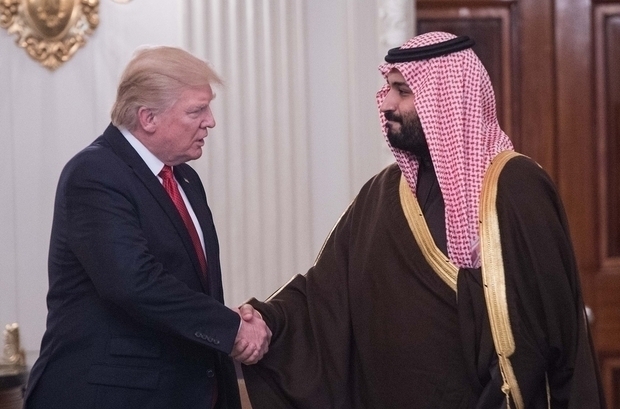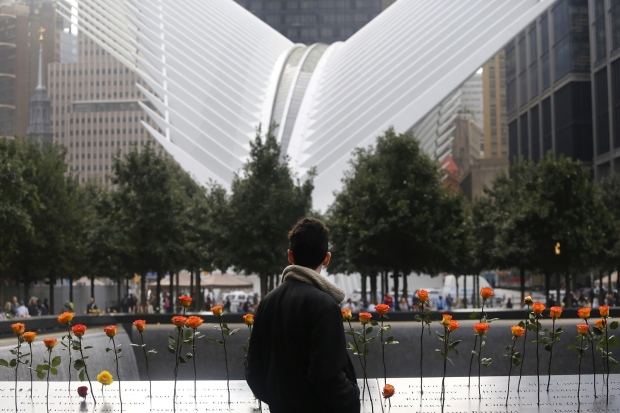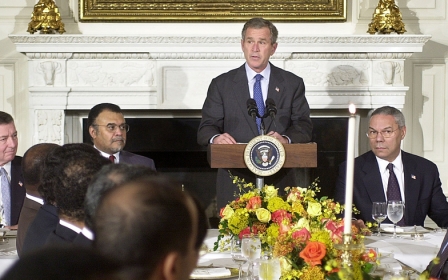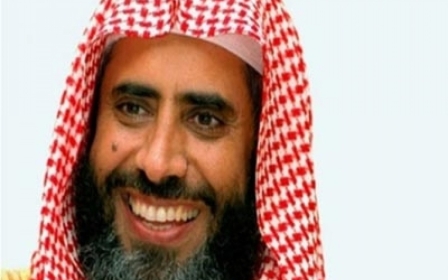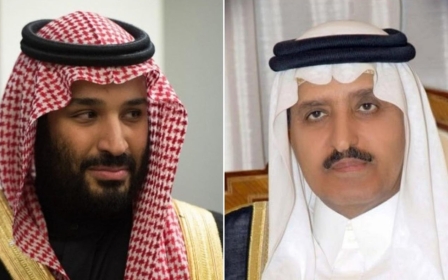The 9/11 lawsuit looming over Saudi Arabia's ambitions
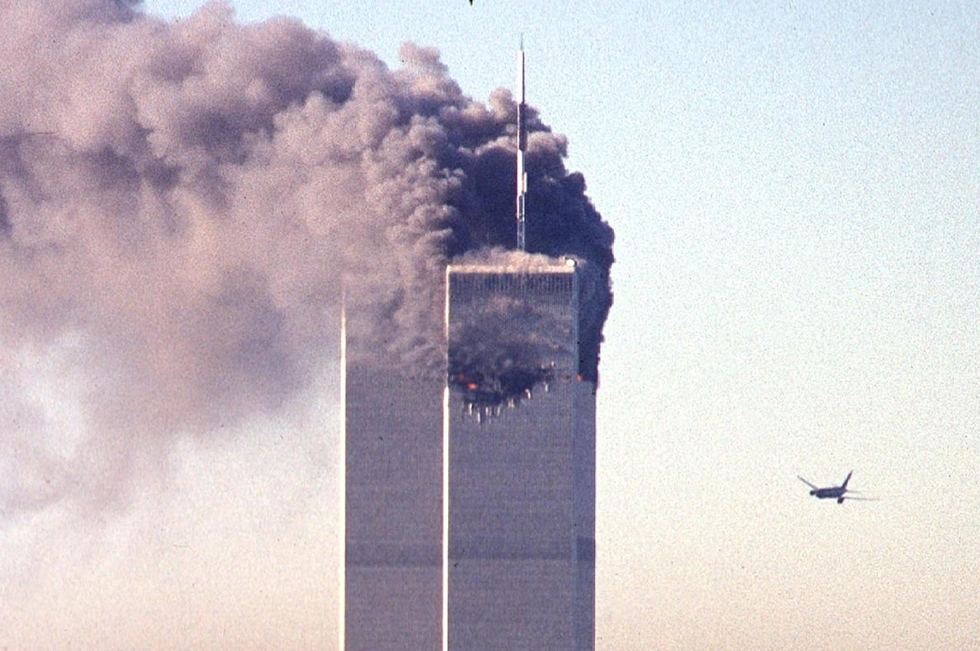
A lawsuit alleging Saudi involvement in the 9/11 attack is overshadowing Crown Prince Mohammed bin Salman's economic and political plans.
Saudi Arabia is rebranding itself, attempting to move its economy away from dependence on oil, to deconstruct its image as an ultraconservative society and portray its autocratic rulers as reformists.
In 2016, the US Senate overruled then-President Barack Obama to pass Justice Against Sponsors of Terrorism Act (JASTA), a law allowing civil lawsuits by victims of "international terrorism" to proceed in US courts against sovereign states.
The bill opened the door for the families of the 9/11 victims to go after Saudi Arabia over its alleged role in the attacks.
While Riyadh maintains that it has nothing to do with the al-Qaeda militants, who have launched attacks in Saudi Arabia often targeting security forces, US District Judge George Daniels in New York gave a green light in March for a lawsuit against the Saudi government to proceed.
The 9/11 Commission back in 2003 and 2004 either didn't pursue, didn't want to pursue, covered up for the Saudis or just never got around to finishing the investigation
- Andrew Maloney, lawyer
Beyond damaging the kingdom's image, the court case threatens Saudi economic interests, namely the plans to sell a 5 percent stake in Saudi Aramco, the state's oil company.
Lawyers had warned the kingdom against listing Aramco's initial public offering on the New York Stock Exchange, the Financial Times reported last year.
Saudi Arabia has denied that it is suspending the sale, which aims to raise $100bn in cash to boost other sectors of the economy. But the IPO's delay is apparent.
"This dampens the Saudi wish to invest in the United States, considering that investments in the United States is one of the pillars of the Saudi economic diversification plan," Imad Harb, director of research and analysis at Arab Center Washington DC, told Middle East Eye.
"Economic relations do spill over to political relations. This is why Saudi Arabia is very concerned about it."
He added that the lawsuit also harms the US public's perception of the kingdom, not only relating to its alleged involvement in the attacks, but also because it opens the door for discussing the current state of affairs in Saudi Arabia, including human rights abuses.
Discovery
Andrew Maloney, a lawyer for the 9/11 victims' families, said the legal proceedings are in the stage of discovery - gathering documents from the Saudis and other parties.
If the Saudis refuse to cooperate with the court, Maloney explained, they would be considered in default, much like Iran.
Judge Daniels himself issued in 2011 a default judgement against Iran in a civil lawsuit that claimed links between Tehran and the 9/11 attackers. Tehran did not respond to the court case although it denies ties to al-Qaeda militants who consider Iran's Shia rulers apostates.
The 9/11 Commission report, which details the extensive government investigation of the attacks, did not corroborate the lawsuit's allegations that Iran trained the hijackers.
Still, in May, Daniels ordered Iran to pay $6bn to the victims' families.
While Iran has no business in the US and is already under Treasury Department sanctions relating to its nuclear programme, Saudi assets in the US are abundant and would be up for grabs if the plaintiffs win.
"If the Saudis were to simply say: 'We're not going to cooperate; see you later,' we can do the same thing that has happened to Iran," Maloney told MEE in a phone interview last month. "I think it would be a very bad move to the Saudis to go down that route."
But politics cannot influence the lawsuit because of independence of the judiciary in the US, Maloney said.
"Even if the president didn't want us to do it, he really couldn't stop us… The Saudis are mistaken if they're relying on the president to protect them here; it's not possible," he added.
The 9/11 Commission report appears to clear the Saudi government of direct involvement in the attacks.
"Saudi Arabia has long been considered the primary source of al-Qaeda funding, but we have found no evidence that the Saudi government as an institution or senior Saudi officials individually funded the organisation," the report reads.
Maloney said the report leaves open a large portion of the Saudi government that could be held liable, including Saudis who may not be considered high-level officials.
If a faction of mid-level Saudi officials had been conspiring with the hijackers, it would make the entire government liable, Maloney said.
The lawyer suggested that the report does not tell the entire story.
"The [Saudi] Ministry of Islamic Affairs in the United States and other parts of the world had government officials who conspired with al-Qaeda to support them and to support the 9/11 hijackers," Maloney said.
"The 9/11 Commission back in 2003 and 2004 either didn't pursue, didn't want to pursue, covered up for the Saudis or just never got around to finishing the investigation. That's where we picked it up, and we've collected a lot more information and evidence since then."
He added that the FBI may have sealed information on Saudi involvement that the plaintiffs are seeking.
The allegations
The most damning allegations in the lawsuit are around contacts by Saudi officials with hijackers Khalid al-Mihdhar and Nawaf al-Hazmi, who arrived to the US and settled in southern California in January 2000.
According to the 9/11 Commission report, the two militants were "ill-prepared" for a mission in the United States: they were not fluent in English and had not spent any "substantial time" in the West. The investigation found that it was "unlikely" that Mihdhar and Hazmi came to the United States without arranging in advance to receive assistance from individuals in the US.
The plaintiffs say those individuals were allegedly two Saudi officials in Los Angeles and San Diego: Fahad al-Thumairy and Omar al-Bayoumi.
Thumairy was the head of a Saudi-funded mosque in Los Angeles and he had been appointed to the position by the head of Saudi Islamic Affairs in Washington, according to court documents. He was also an "accredited diplomat" at the Saudi consulate there. The lawsuit accuses him of "orchestrating the US-based support network" for Mihdhar and Hazmi.
The lawsuit says Bayoumi, in turn, allegedly helped Mihdhar and Hazmi settle in San Diego, where he co-signed a lease for their apartment and put them in touch with Anwar al-Awlaki, a preacher who later came out in support of al-Qaeda and was subsequently killed by a US drone strike in Yemen in 2011.
The 9/11 Commission report says, "We do not know" how the hijackers met al-Awlaki.
Bayoumi allegedly also connected the hijacker to an individual from Awlaki's congregation who provided further assistance.
"Based on these alleged facts, plaintiffs claim that Thumairy and Bayoumi were directed by someone within the Saudi embassy in Washington, DC, to help Hazmi and Midhar acclimate and settle in the United States to begin preparations for the 9/11 Attacks," Judge Daniels wrote in March.
The lawsuit says Bayoumi's phone records show that he made calls to Saudi consulates in the US 74 times between January and March 2000, coinciding with the hijackers arrival in the country. 34 of those calls were made to the consulate in Los Angeles where Thumairy worked.
"These allegations, unrebutted by any contrary evidence from Saudi Arabia, are sufficient to create a reasonable basis for this court to exercise jurisdiction over the claims plaintiffs assert against Saudi Arabia to justify jurisdictional discovery to proceed as to Thumairy and Bayoumi," Daniels wrote in his decision to reject Saudi Arabia's motion to dismiss the lawsuit.
Both Thumairy and Bayoumi deny that they knew anything about the hijackers' plans.
In an interview with Saudi-owned newspaper Asharq al-Awsat in 2002, Bayoumi said Hazmi and Midhar had sought help from established expats in San Diego like any Saudi newcomers, adding that they only stayed in the initial apartment complex for two weeks. He did not know where they went next, he said.
Bayoumi had left the US to continue his studies in the UK in October 2000, about a year before the attacks. He told the Saudi newspaper in 2002 that British police had thoroughly searched his house and interviewed him for a week before he decided to return to his home country seven months later.
For his part, Bayoumi was denied re-entry to the US in 2003 after his visa was cancelled without explanation. He told Asharq al-Awsat then that he cannot recall any violation that he may have committed in the US.
Asked if there is evidence linking Saudi officials to the 9/11 attacks beyond the two hijackers who landed in California in 2000, Maloney's answer was a "definitive yes," but he refused to share the details.
"Eventually, it will come out; you will see, but I can't go beyond that," the lawyer said.
This article is available in French on Middle East Eye French edition.
New MEE newsletter: Jerusalem Dispatch
Sign up to get the latest insights and analysis on Israel-Palestine, alongside Turkey Unpacked and other MEE newsletters
Middle East Eye delivers independent and unrivalled coverage and analysis of the Middle East, North Africa and beyond. To learn more about republishing this content and the associated fees, please fill out this form. More about MEE can be found here.


